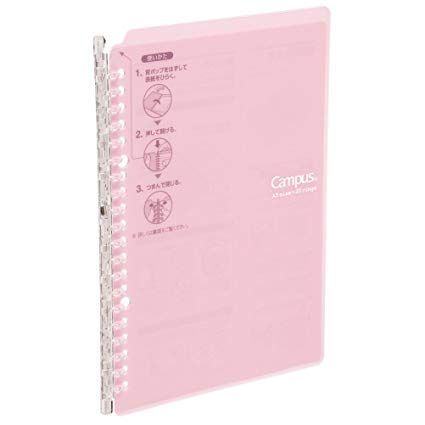#finance girl
Text
Mastering the Art of Time Management: Your Guide to Productive Study Sessions
Girls in Finance project server // other posts
Time management is a critical skill for academic success. By organizing your study sessions effectively, you can maximize productivity and achieve better results. Here's your comprehensive guide to mastering the art of time management:
1. Set Clear Goals:
Define specific, achievable objectives for each study session.
Break down larger tasks into smaller, manageable goals.
Prioritize tasks based on deadlines and importance.
2. Create a Study Schedule:
Develop a weekly study schedule that aligns with your routine.
Allocate dedicated time slots for different subjects or topics.
Include breaks to prevent burnout and maintain focus.
3. Utilize Time-Blocking Techniques:
Adopt the Pomodoro Technique or other time-blocking methods.
Work intensely for a set period (e.g., 25 minutes), then take a short break.
Repeat the cycle to enhance concentration and efficiency.
4. Eliminate Distractions:
Identify and minimize potential distractions in your study environment.
Consider using productivity tools or apps to block distracting websites.
Communicate your study time to friends and family to minimize interruptions.
5. Prioritize Tasks with Eisenhower's Matrix:
Categorize tasks into urgent, important, not urgent, and not important.
Focus on tasks in the "urgent and important" quadrant first.
Delegate or eliminate tasks in the "not urgent and not important" quadrant.
6. Review and Reflect:
Allocate time at the end of each study session to review what you've learned.
Reflect on your study methods and adjust your schedule accordingly.
Celebrate small victories and achievements.
7. Utilize Technology Wisely:
Explore time management apps and tools that align with your preferences.
Set reminders for deadlines and upcoming exams.
Leverage digital calendars to stay organized.
8. Stay Flexible and Adjust:
Be open to adjusting your study schedule based on your evolving needs.
Recognize when to take breaks or switch subjects to maintain engagement.
Embrace a growth mindset and learn from your experiences.
Join our Girls in Finance project if you want to learn more about studying finance and the financial world <3.
#studyblr#studygram#motivation to study#study notes#study tips#studying#100 days of productivity#studyinspo#study blog#exams#finance girl#findyourthing#finance
155 notes
·
View notes
Text




One day, I’ll reach my dream of working in the city.
#corporate girl#finance#finance girl#lawyer#aesthetic#university#studyblr#study blog#studyinspo#banking#banker#investment banking#london#I wish to be smart#girlblogging#academia aesthetic
38 notes
·
View notes
Text
Basic Financial Rules To Live By 💰✨
Create a plan that shows how much money you get and how much you spend. This helps you see where your money goes.
Set aside a part of your money as savings. Try to save at least 10-20% of what you earn.
Be careful with borrowing money, especially if you have to pay back a lot of extra money (interest).
Save some money for unexpected things like medical bills or losing your job. Aim to have enough to cover your living costs for a few months.
Put your saved money into different things that can make it grow, like stocks or real estate. Be patient, as it takes time.
Don't spend more money than you make. Stick to buying what you really need, not just what you want.
Decide what you want to do with your money, both in the short term (like a vacation) and long term (like retirement).
Set up automatic transfers to your savings and bills so you don't forget to save or pay your bills on time.
Make saving money a top priority before spending on other things.
Regularly look at your money situation, adjust your plan as needed, and see how your investments are doing.
Pay your bills on time and use credit wisely (like credit cards) to keep a good credit score, which can help you get better deals on loans.
Save money for when you're older and don't work anymore. Use retirement accounts to help with this.
Think before you buy things. Don't buy something just because you want it; think if it's necessary.
Keep learning about how money works and how to make smart money choices.
Only use your emergency fund for real unexpected problems, not for things you just want to buy.
#financial planning#finance#investing#money#girl math#wealth#level up journey#it girl#dream girl#dream girl guide#dream girl tips#dream girl journey#that girl#becoming that girl#educate yourself#wealth mindset#growth mindset#success mindset
3K notes
·
View notes
Text
what my finance mentor, who manages a billion-dollar portfolio sent me this morning
I’m going to start sharing the resources he’s been sharing with me. You can find everything on my pinned index post, under “Mentor recommendations.”


#c suite#ceo aesthetic#personal growth#powerful woman#strong women#that girl#productivity#getting your life together#balance#Finance#mentor#Billionaire mentor
2K notes
·
View notes
Text
Soft Life 101: 3 Steps to Escape Your 9-5 Job If You Don’t Want to Work


Before we start, I want to clarify what I mean by “Not wanting to work.”
It means, that I don’t want to exhaust myself. I want to roll out of bed at 8 am then go to a workout class at 9 am. I want to spend my time as I please while keeping my workload to a minimum.
Working consistently, burns me out. I have no desire to prove my worth through productivity, nor do I have any desire to engage in hustle culture. I’m sure many of us can relate to feeling like the pressure to perform is exhausting. This is likely why, “soft life” is the latest trend on social media and has taken the girlies on Tiktok by storm.
In this new soft life era apparently, no one has a job and everyone is a "sahm" or "sahgf". While I understand the desire to escape the matrix and have a man you can fully depend on. Creating a more balanced and fulfilling life does not have to solely depend on your partner (though it helps!).
At the end of the day we still all want money! So how can we create an abundant life while still having a work-life balance?
Step 1: Be willing to make sacrifices
There is no such thing as something for nothing. Get that out of your head! I know we sometimes want to be saved, but unfortunately, life isn’t always a fairytale. Everything that we desire in life requires us to give up something else.
Do you want a better body? Give up junk food and exercise more. Do you want a better man? Give up your dust! To bring in the new we have to get rid of the old. If you want a soft life you’re going to have to strategize and be willing to give up what is no longer serving you.
Step 2: Find a passion you can monetize
*major key*
As the saying goes, “If you love what you do, you’ll never work a day in your life”. Find something you enjoy doing, then figure out how you, can earn money from it. Are you good at doing hair? Become a hairdresser. Are you the best dressed in your circle? Become a virtual stylist. I promise you, for whatever talent you have there are people willing to pay you for it!
For myself, I love teaching and writing! Blogging is a great way to share my expertise, create passive income, and create the life of my dreams that don’t necessarily depend on me going into a job. Also, you can make money blogging with a relatively small audience.
Check out my blog post "Make Money When your Young, Pretty & Ambitious." For more on this topic.
Step 3: Invest, invest, invest
*Another major key*
We all need money to survive. There’s no way around it! Ideally, we would live a life where money isn’t an issue and if that is your goal you have to start investing ASAP! By investing in assets eventually, those assets will make you money.
For example, invest in stocks like the S&P 500 (which is an index fund that is essentially many companies in one stock). Invest in stocks that will grow over time and make you more money than you bought them for. There are tons of ways to start investing: choose one!
A few types of investments
Real estate
Stocks
Businesses
If living a soft life is a priority to you start today with these steps that will eventually allow you to either fully retire or work minimally. If you don’t, you’ll just be stuck doing something you don’t enjoy or waiting for prince charming to come and save you.
©Chichiscloset 2023
#that girl#pink pilates princess#glow up#level up#leveling up#leveled up mindset#black women in leisure#level up journey#levelling up#femme fatale#feminine#black femininity#black female writers#black feminity#black women in luxury#luxury black women#dream girl journey#dream girl#dream body#dream life#self care#high value woman#high maintenance#high standards#self improvement#green juice girl#clean girl#Post#femininity#finance
2K notes
·
View notes
Text
restocking and replenishing⋆.ೃ࿔*:・✍🏽

im making this post cuz i think its helpful to keep track of what u normally need and normally buy + how long it lasts u until it needs to be replaced.


i separate mine weekly/monthly depending on what it is that i need, but by creating a sort of system like this u can save a lot of time when u go shopping, plus it'll bring ur organization to the next level.
HOW TO DO IT ;
so get some paper (preferably graphed paper, simply bcuz i find it neater and more aesthetically pleasing) and on one side write weekly and on the other side write monthly.
remember to use scented glitter gel pens and have FUN, make little doodles on the sides and decorate it with stickers when ur done.
on the weekly side write out what u need on a weekly basis. for example one thing on the weekly side of my list is sheet masks cuz i use them 1-2x a week.
use bullet points so that then everything is concise and easy to read, also when u go and buy them make sure to write the prices of those items, then u can use that data if u have other charts or lists ✨
on the monthly side write out what u need on a monthly basis. for example one thing on the monthly side of my list are my vitamins and my chlorophyll droplets.
DESIGNATE A DAY ;
have a designated day when u usually go and get whatever is on ur restock and replenish list. have some fun with it and make it a tradition of sorts even.
ur designated day should preferably be before ur week/month starts so that then u are fully equipped with what u need to feel and perform at ur best
my designated day is USUALLY saturdays and on my restock and replenish days i always have a kombucha and treat myself to something else that i want.
#honeytonedhottie⭐️#it girl#becoming that girl#self concept#self care#self love#that girl#it girl energy#dream girl#dream girl tips#dream life#organization#organization tips#self improvement#self reflection#self development#finance#tracking#lists#hyper femininity#girly#girl blogging#girl blog#romanticize
195 notes
·
View notes
Text




source: Pinterest
Join our "Girls in Finance"-Server <3. I love you all!
#studyblr#studygram#study tips#study notes#motivation to study#100 days of productivity#studying#studyinspo#study blog#exams#finance girl#finance
173 notes
·
View notes
Text
Women used to sell their engagement / wedding rings to escape abusive marriages. Learn from your foremothers. Never tell a man you have your own money. Financial freedom is the most important of all.
Having your own savings and source of income that can't be stolen from you gives you so many opportunities. Don't fall for their smooth words under the guise of 'fairness' and 'trust'. Protect yourselves and only trust yourself. For your safety and autonomy.
It can be the difference between being homeless and being safe. Spread the word.
#radical feminism#radfem#wgtow#female liberation#women's rights#personal finance#abusive relationship#feminism#it girl#high value woman#high value mindset
372 notes
·
View notes
Text
Wealth Building: What Rich People Do Differently
Wealthy people prioritize learning about personal finance, investing, and wealth building strategies. They always strive to gain more knowledge in these areas.
They maintain a long term perspective when setting financial goals and are patient in their pursuits.
Wealthy people diversify their investments across various asset classes to manage their risk.
Many of them are entrepreneurs who create and manage businesses as a means to build wealth.
They build and nurture professional networks opens doors to opportunities for investments, partnerships, and business growth.
They set clear, specific financial goals and regularly review and adjust their strategies to stay on track.
Wealthy individuals exercise discipline in their spending habits, avoiding impulse purchases and consistently saving and investing.
They assess and manage investment risks carefully, often with the guidance of financial advisors.
Many engage in philanthropy and charitable giving, recognizing the importance of supporting their communities and causes they care about.
Wealthy people invest in their personal development, acquiring new skills and knowledge to increase their earning potential or make better investment decisions.
They use legal tax strategies to minimize tax liabilities, such as tax advantaged accounts and tax efficient investments.
Legal structures like trusts and estate planning are employed to safeguard assets and facilitate smooth wealth transfer.
Wealthy people can adapt to changing economic conditions and market trends by diversifying income sources and investments.
Building wealth often involves overcoming setbacks and failures, and the wealthy demonstrates the result of persistence in their pursuit of financial success.
They have a positive and growth oriented mindset drives their belief in their ability to succeed and willingness to take calculated risks.
They prioritize acquiring and growing assets, emphasizing that assets generate income and wealth over time.
They are cautious about spending in liabilities (Things that do not make you money) and maximize their assets (add value) and those that detract from wealth (liabilities).
Instead of working solely for money, they make money work for them.
When they indulge in luxury purchases, they do so using returns on their investments rather than the money they earn or have saved.
#finance#investment#financial planning#investing#entrepreneur#girl math#generationalwealth#rich#success mindset#wealth
844 notes
·
View notes
Text

The face the body and more
#success#black tumblr#80s#anorexla#adult model#naomi campbell#finance#aaliyah#90's fashion#90s aesthetic#90s supermodels#90s runway#shalom harlow#girl interupted syndrome#girl interrupted#black beauty#black women#black and white#beautiful model#skinnni#photography
148 notes
·
View notes
Text
Femme Fatale Guide: How To Master Your Money & Tips On Financial Literacy
Understanding and taking control of your finances improves your quality of life in many ways. Making strides toward better financial literacy can save you a lot of stress, unnecessary fees and helps you play a more active role in taking control over this aspect of adulthood. Once you understand the game of money, saving, and investing, it becomes infinitely simpler to devise a plan to set yourself up for a more financially-free future. Here are some practical tips to keep your finances streamlined, secure, and systemized to help you gain more financial literacy and win in this area of life.
Overview:
Track Your Income & Expenses
Set Financial Goals & Realistic Limitations
Invest Higher-Quality Items To Save Later
Educate Yourself On Different Types of Banking & Investment Accounts
Establish Credit, But Know Yourself
Create An Emergency Fund
Leverage Credit Card Benefits
Understand The Power of A Roth IRA (or Backdoor Roth IRA) & HSA
Automate Whenever Possible
Get Familiar With Taxes & Write-offs
Stay Informed About Employer Benefits
Purchase Seasonally & With Discount Codes (When Available)
Protect Yourself
Read Books
Seek Expert Advice
TIPS ON MASTERING FINANCIAL LITERACY:
Track Your Income & Expenses: Always have a record of all of the money going in and out of your accounts. Use the tool on your banking account app(s) to confirm your monthly income and expenses. Tools like Mint also are great to track your spending to see where every dollar is going all in one place. Aside from personal use, for small business owners, Quickbooks is my favorite invoicing and expense-tracking option.
Set Financial Goals & Realistic Limitations: Once you know your exact monthly income, budget your essentials, savings, investments, and fun money accordingly. Make sure necessities like rent, food, health insurance, electricity, WiFi, toiletries, etc. are accounted for before anything else. Depending on your financial situation, experts (not me – I try to educate myself as best as I can, but am no expert!) recommend trying to save and invest between 15-30% of your pre-tax income. Give yourself the liberty to spend the rest (say 15-20%) of your income, so you don’t feel deprived and stay on track with your goals.
Invest Higher-Quality Items To Save Later: Initially purchasing a higher-quality item often cuts your overall expenses in a certain area over the long run. (Ex: Well-made clothing, shoes, furniture, kitchen appliances, coffee maker, hair dryer, etc.). If you invest upfront on an item you regularly use, there’s a lower chance that it will deteriorate, rip, break, or otherwise become unusable for the next few years. When you opt for the cheaper option, this practice might save you a few bucks in the short term, but you will probably end up having to replace it a few times over time and spend more in the long run. This tip might seem counterintuitive to some, but it truly does save you a lot of money (and frustration). However, I will place a caveat here and say that this advice comes from a place of privilege. Never purchase something you can’t afford. If you have the means, spend a bit more upfront - it is better for your future wallet, allows you to indulge in a better quality of life, and helps you let go of any scarcity mindset/financial limiting beliefs.
Educate Yourself On The Different Types of Banking & Investment Accounts: Know the differences between and the use purpose of different accounts: Checking, Savings, CDs, 401K, Roth IRA, HSA, etc. Always opt for a high-yield savings account option to help preserve your money’s value over time with rising living costs and inflation.
Establish Credit, But Know Yourself: Your credit score is like your adult report card. It’s essential for so many aspects of life, like renting or buying a home, insurance, cell phone plans, etc., so it’s important to start building your credit as early as you can. However, if you know you’re the type of person to overspend with a credit card, look into secured credit card options (you deposit the money that acts as a credit limit, so it’s like a debit card with credit-building benefits).
Create An Emergency Fund: Pay yourself first. Have between 3-12 months of expenses available in a high-yield savings account at all times. If you have a family or are self-employed, aim for 6-12 months of necessary savings to stay sane. Saving this amount of money takes time. Be patient, and cut back on frivolous expenses if needed for the short term.
Leverage Credit Card Benefits: If you have enough self-control, always use a credit card instead of a debit card – but spend in the same way you would as though the money is coming directly out of your bank account. This gives you additional flight and other purchasing perks, such as cashback and exclusive discounts. Using a credit card provides additional security, too.
Understand The Power of A Roth IRA (or Backdoor Roth IRA, depending on your income) & HSA: Compound interest is your best friend financially. Depending on your income, invest as much as you can into a Roth IRA account or set up a backdoor Roth IRA through your brokerage firm (I use Vanguard!). HSA (Health Saving Accounts) accounts offer so many benefits – they can serve as a tax write-off, lower your overall healthcare costs, and be leveraged to use as an additional retirement investment account, too (I use Fidelity).
Automate Whenever Possible: Automate a portion of your paycheck to savings and your investments, so you never see this money. Pay yourself first before spending (on anything but necessities).
Get Familiar With Taxes & Write-offs: This mainly applies to anyone self-employed or a small business owner (been in the game for 5 years!). However, this point can also potentially be beneficial for students who can leverage an education credit for tax purposes. Explore all of your options to see what write-offs are available in your specific situation. Understand how your income and expenses influence your tax bracket. Investing in a CPA can save you a considerable amount of money and all of your sanity if you’re not a salaried employee. Look over the standardized section C document, and speak with a professional to help maximize your write-off potential (legally and honestly, of course). My CPA is my lifeline!
Stay Informed About Employer Benefits: Always maximize your 401K match (whatever percentage that is at your company), any wellness perks (like a gym membership or massage credit), or any meals and car services credits for late nights/work trips.
Purchase Seasonally & With Discount Codes (When Available): Try to purchase items off-season when you can (e.g. purchase classic winter closet staples in the summer when they’re on sale). Utilize plug-ins like Honey or Cently on your browser to have discount codes for any site readily available.
Protect Yourself: Stay on top of fraud alerts. Freeze your credit bureau accounts if necessary.
Read Books: Educate yourself on saving, investing, budgeting, building a business, etc. See the ‘Finance’ section of my Femme Fatale Booklist for some recommendations. I also love Graham Stephan’s Youtube channel – his videos are highly useful and practical for beginners in this life arena!
Seek Expert Advice: Use licensed professionals (CPAs, brokerage firms, your bank, etc.) as a resource, too, for your personal goals.
This is a lot to take in, so try to implement one action item (or a few) at a time, so you can work towards your goals without getting overwhelmed. Also, for reference, I’m in the United States, so all of these tips are focused on how the system works in my country - if you know of any international equivalents, feel free to drop them in the comments to guide others.
Hope this helps xx
#life advice#finance#adulting#femme fatale#dark femininity#dark feminine energy#it girl#hypergamy#high value woman#divine feminine#high value mindset#hypergamous#the feminine urge#success mindset#productivity#spending habits#entreprenuership#level up#self improvement#ideal self#female power#female excellence#personal growth#investing#girl advice#that girl#femmefatalevibe
1K notes
·
View notes